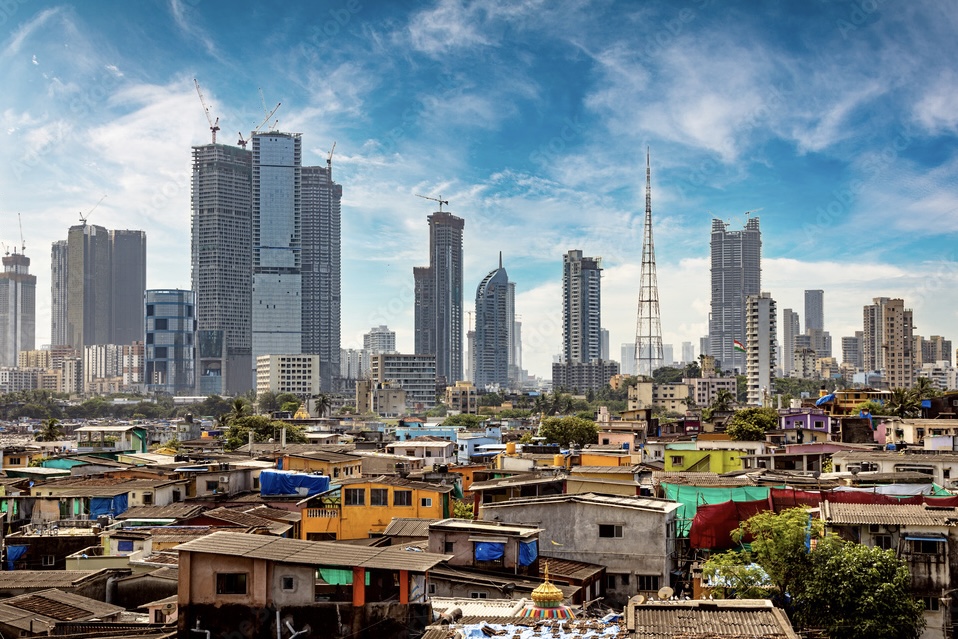Future of Asian metropolises starts from slums
The ESCAP summit on sustainable development is currently underway in Bangkok, focusing on those urban peripheries so dear to Pope Francis. The complaint: the Asia-Pacific region has the largest housing deficit in the world, and the development and enrichment of urban centres is not solving the problem. Meanwhile, climate change risks worsening the situation.
Milan (AsiaNews) - The 81st session of ESCAP, the United Nations Economic and Social Commission for Asia and the Pacific, opened yesterday in Bangkok and will continue until 25 April.
The aim is to monitor the region's progress towards the 17 Sustainable Development Goals (SDGs) that the United Nations has set as targets for 2030.
This year's session highlights Goal 11, which aims to make cities inclusive, safe, resilient and sustainable. Despite progress, this goal is still a long way off. The problem is not only social: the housing deficit is also a structural brake on the economic development of cities.
Metropolises are complex organisms. Everything within them has a function, like the organs of a body. The flow of people passes through the city's nerve centres and lives on the streets. It enters the heavy, orderly skyscrapers.
Then it passes through residential areas and arrives in the more extensive slums, light and chaotic; it is here that – as Pope Francis has repeated many times – the heart of the metropolis beats and it is here where the lives of 600 million people unfold, supporting the city's economy by working in factories, construction and waste management.
Megalopolises are like a human body, no organ can be neglected: if urban centres want to get richer, they can't do it by ignoring the slums.
Informal settlements and slums hinder economic development for a logical reason: since they're not legally recognised, the people who live there don't contribute to tax revenue. Other entities, often criminal, collect the money owed, fuelling the informal economy.
Poor hygiene leads to high healthcare costs, while the absence of property rights discourages investment. Isolation from public services and marginalisation fuel intergenerational poverty, so these cities within cities do not empty, but become crowded.
According to the report, the Asia-Pacific region has the largest housing deficit in the world, and the development and enrichment of urban centres is not solving the problem.
Instead, the population living in informal settlements will increase and, according to ESCAP estimates, could rise from 500 million in 2020 to 1.52 billion in 2050 in Central and South Asia. In East and South-East Asia, it estimates a more modest increase, from around 350 million to 465 million. The vision of ‘cities without slums’, formulated by Nelson Mandela in 1999, is still a distant prospect.
The uncontrolled development of cities has exceeded the capacity of states to govern their expansion. In 2008, the global urban population surpassed the rural population, marking the dawn of a new ‘urban millennium’, and by 2050, two-thirds of the world's population is expected to live in these areas, with the number of urban residents growing by nearly 73 million every year.
In addition to population growth, pressure on cities will increase in the coming years due to the climate crisis. According to estimates in the document, 8 million climate migrants will move by 2050.
Among the various destinations are Dhaka and Karachi in Pakistan, which could have to accommodate more than 3 million and more than 2 million climate migrants, respectively.
The report devotes considerable space to the repercussions of climate change on the real estate landscape - Chapter 2, dedicated to the most vulnerable elements.
The situation is fuelled by the malfunctioning of the real estate market, which makes housing costs excessive. The ratio between the cost of a home and annual household income exceeds reasonable standards - annual income should be no less than one-fifth of the cost of the home.
Properties in metropolitan areas have become an investment, a commodity, rather than a place to live. If left unregulated, the real estate market could create systemic risks for urban, national and even global economies, potentially leading to a real estate bubble.
The seriousness of the situation has prompted Asian countries to seek a solution: the ESCAP report also cites some virtuous examples in the region.
In Thailand, the Baan Mankong programme, led by a semi-autonomous public agency, helps slum dwellers obtain secure housing through neighbourhood cooperatives and subsidised loans.
Attempts by local authorities to dismantle slums along the canals have been met with opposition from residents and human rights associations, as separating people in difficulty from their social networks will further limit their ability to reorganise themselves adequately.
The project stems from this insight: communities form cooperatives, negotiate with private landowners and the government to purchase land, and jointly negotiate loan terms.
Ownership is held collectively, and the pooling of resources facilitates access to financing. Public land for affordable housing is limited, but by coming together, the community has the power to claim its rights.
The community itself will then determine the characteristics of the new residential area, adapting it to its needs.
The Indonesian model - Sapula - emphasised the importance of legalising property ownership in order to achieve a lasting solution. At the heart of the strategy is also the awareness of the need to involve local government and communities, decentralising the process.
Slums are not an anomaly: they are an integral part of the urban fabric and, if ignored, weaken the entire organism. Targeted interventions are needed to guarantee secure property and public services, involving the communities.
Any intervention requires time, social cohesion and strong institutional support: difficult conditions, especially in large and fragmented cities. But the economic development of cities will be impossible if they continue to collapse under their own contradictions.
07/02/2019 17:28







.png)










